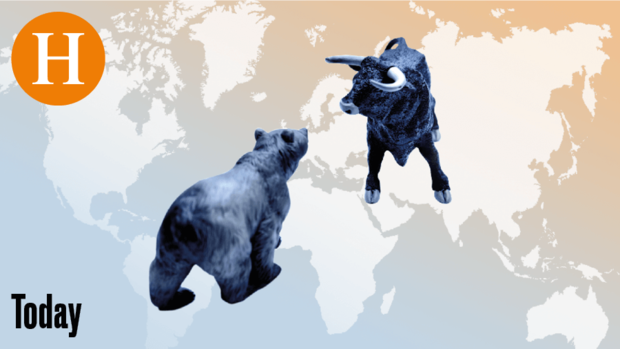Dusseldorf Life insurance is one of the most popular old-age provision products for German policyholders. “At the turn of the year, around 83 million life insurance policies were taken out,” says Handelsblatt editor Christian Schnell in the new episode of Handelsblatt Today. Compared to previous years, the number of degrees has even increased.
But while yields have been falling for years, inflation hit a new record high of 7.4 percent in April. This increasingly puts life insurance in a dilemma: According to Schnell, Germans are underinsured, and in some cases through no fault of their own: “When the insurance was taken out years ago, the level of inflation was completely different and almost not noticeable.”
Alternatives to life insurance are also a question of risk
“The money that I get out of it at some point will no longer be enough for me at some point,” says Schnell. The current interest on existing policies has long since been unable to compensate for the depreciation of the currency.
Alternative asset classes exist in exchange for more risk. Around 80 percent of the contributions are currently invested in fixed-income securities. However, insurers are gradually opening up other asset classes as well. For example, the industry is investing more and more in private equity and company holdings, and is primarily focusing on future topics.
Top jobs of the day
Find the best jobs now and
be notified by email.
The importance of diversity in the founding phase of start-ups
Also: The quota for women on the executive boards of German companies came into force in 2021. But in most management teams, you still look in vain for the female gender. Many companies are not affected by the regulation because of their size. The Handelsblatt therefore positions itself at the weekend with a plea for more diversity in executive floors and presents 50 women with role model character.
In an interview, Handelsblatt chief reporter Tanja Kewes explains why it is precisely the young start-up scene that produces mainly male founders. “The start-up scene is very open and diverse, but is actually more backward than some large corporations when it comes to promoting women,” says Kewes. Out of 25 unicorns in Germany, only one is led by a woman.
We have an exclusive subscription offer for you as a Handelsblatt Today listener. Interested? Then take a look here.
If you have any comments, questions, criticism or praise for this episode, please email us at: [email protected]
